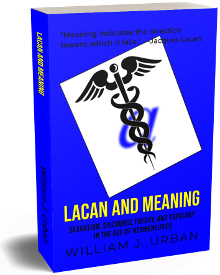Donald J. Trump versus the Progressive Left:
An Aristotelian Battle
What accounts for the political division in the United States today? Are the reasons ideological, religious, racial, economic... or something else?
Aristotle's work seems to suggest the true reason lies with logic. The Progressive Left and Conservative Right might be using different logics, or at least have a different understanding of a single logic. This difference manifests itself at the level of language.
This is readily seen in the opposing ways the Left and Right hear the 45th President of the United States, Donald J. Trump. Apparently, he says different things to each of them when he speaks. The response to his very first political speech (the one where he formally announced his candidacy) makes this abundantly clear.
One part of that speech has since become famous:
"When Mexico sends its people, they’re not sending their best. They’re not sending you. They’re not sending you. They’re sending people that have lots of problems, and they’re bringing those problems with us. They’re bringing drugs. They’re bringing crime. They’re1 rapists. And some, I assume, are good people."
—Donald J. Trump, June 16, 2015
This is what Trump literally said on that fateful day. But at the level of meaning, the Left and Right heard him say two very different things about Mexicans. What exactly did they hear, and how did they reach their opposing conclusions?
Whether you watch CNN, MSNBC, Fox News or follow political discussions in print, you already know the answer to the first part of the question. Debates over what Trump 'really' said are usually initiated from the Left, where a progressive commentator will claim that Trump made a sweeping generalization about Mexicans being criminals and rapists. The conservative side must then play defense. And quite naturally, since most people on the Right hear something more modest in Trump's speech about the criminality of Mexicans. To concisely summarize the viewpoint of the two sides:
| Progressives hear: | "All Mexicans are criminals and rapists." |
| Conservatives hear: | "Some Mexicans are criminals and rapists." |
But how these conclusions are reached is much more difficult to understand. Let's arrange the two statements into an Aristotelian square of opposition.
It does not appear that Trump universally declares anything about the criminality of Mexicans in his speech. That is, there are no obvious 'All' statements. But he does unambiguously make the particular affirmative statement that "Some [Mexicans]... are good people."
The level of the particular is where conservatives clearly focus their attention. If we agree that Trump's statement "Some [Mexicans]... are good people" is effectively equivalent to "Some Mexicans are not criminals and rapists," this means that "Some Mexicans are criminals and rapists" is also true. Why? Because the two particular statements at the bottom of the Aristotelian square are related as subcontraries. Moreover, since the particular negative statement stands in contradiction to the universal affirmative statement, the truth of the latter is excluded. In the end, conservatives deny that Trump speaks about all Mexicans when he talks about criminality. Trump does not say "All Mexicans are criminals and rapists" either literally or implicitly.
Progressives would not necessarily disagree that Trump effectively makes a direct statement regarding just a particular subgroup of Mexicans. Why? Because they would hold that the truthfulness of such a statement stems from the fact that Trump believes "All Mexicans are criminals and rapists." For if all Mexicans are criminals, then it is also true, a fortiori, that some Mexicans are criminals.
The problem with the progressive reading is that subalternation only proceeds in one direction, from the universal to the particular statement level, and Trump only appears to make particular statement(s) in his speech. Strictly speaking, if you hold "Some Mexicans are criminals and rapists" to be true, you cannot source the truth of this statement to "All Mexicans are criminals and rapists." In order for progressives to indict Trump at the level they do, they must either set aside the logical relation of subalternation for an alternative logic, or find textual evidence that Trump is, in fact, directly making universal declarations regarding Mexican criminality.
So how would Aristotle rule the debate? It is unclear. While Aristotle did not explicitly discuss subalternation and subcontrariety, most traditional logicians find them implicit in his texts. Yet it appears he did not consistently apply the logic of subalternation, and in the end chose to read 'some' as not eliminating the possibility of 'all.' This would somewhat place Aristotle in the progressive camp, in contrast to the conservatives' more natural ear which hears formal declarations of 'some' as no more than just that, 'some (but not all).'
1 There is a slight ambiguity in the transcript of these spoken words: "They're rapists" might be "Their rapists" in reference to the type of people Mexico is sending which Trump speaks of in the first sentence; it thus reads as "Mexico is sending their rapists." Trump often utters statements (or fragments thereof) which do not perfectly align with those that are uttered immediately before and after, but do make sense within the wider context of much earlier and/or later statements.
Back to Aristotle and Lacan

